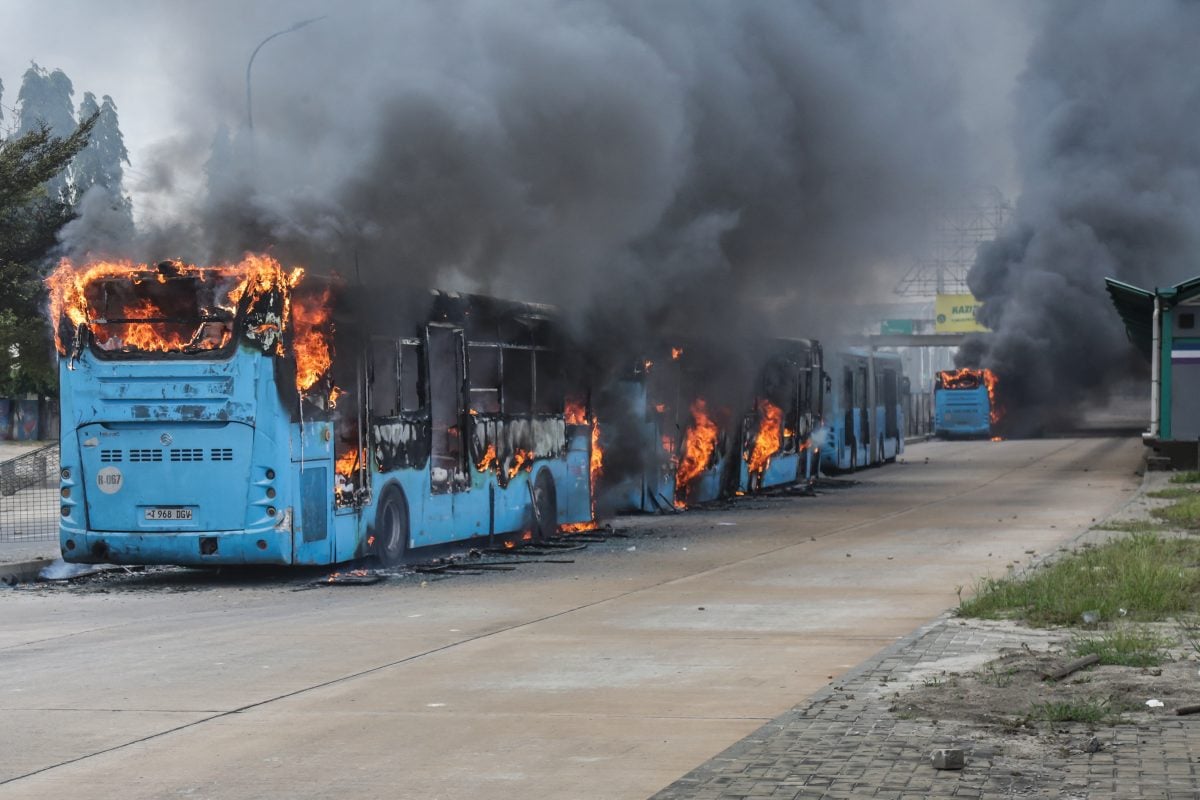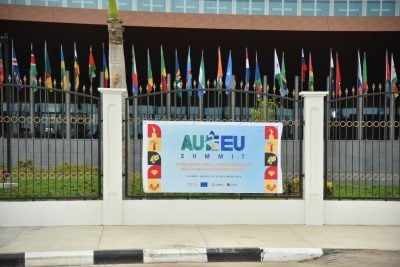The African Union’s election observation mission has slammed the conduct of the Tanzanian presidential election, which saw incumbent Samia Suluhu Hassan elected with an apparent 98% of the vote while hundreds of protestors were killed.
In its preliminary report, the mission, led by former Botswana President Mokgweetsi Masisi, concluded that the elections “did not comply with AU principles, normative frameworks, and other international obligations and standards for democratic elections.”
It found that the environment before, during and after the elections was not conducive to “peaceful conduct and the acceptance of outcomes” and that the electorial commission and other institutions were inadequate to address the challenges of electoral integrity.
“The legal framework’s failure to comply with some AU democratic norms and international standards for democratic elections, non-implementation of recommended reforms from previous election observation missions, the interruption of the polling process in some parts of the country, and the internet shutdown on election day and afterwards compromised the integrity of the 2025 Tanzania General Elections,” they concluded.
The damning report came just days after African Union Commission chairperson Mahmoud Ali Youssouf congratulated Hassan for her victory in a statement in which he also said he “deeply regrets the loss of human life during the post-electoral protests”.
Suluhu was sworn in for a second term this week in a tightly-controlled inauguration ceremony at a military parade ground in the capital, Dodoma.
Violent crackdown
NGO Human Rights Watch concluded that the authorities in Tanzania responded to widespread protests following the election with lethal force and other abuses.
Its report cited John Kitoka, the director of foreign and diaspora affairs of opposition party Chadema, who said that the party had collected reports of up to 1,000 people killed by police and unidentified security force personnel in the aftermath of the elections. Chadema boycotted the election following the arrest and prosecution of its leader Tundu Lissu.
While Human Rights Watch says it has not been able to confirm Kitoka’s numbers, it pointed to references to the large number of fatalities by bodies such as the African Commission on Human and Peoples’ Rights, the Southern African Development Community, the United Nations Office of the High Commissioner for Human Rights, and the European Union.
Human Rights Watch said that security forces used live ammunition against opposition protests, some of which were violent.
While not referring directly to the killings, the AU observer mission said it “regrets the loss of lives following election day protests observed” and found that the electoral environment detiorated over the course of election day.
While the morning was generally calm, “the situation shifted to violent protests, gunfire, road closures, and tyre burning in areas such as Dar es Salaam, Mbeya, Mwanza, Kagera, Dodoma, Kigoma, Tebora, Buhungwa, Singinda, among others. Our observers encountered serious security challenges as they could not return to Dar es Salaam immediately due to a sudden imposition of a curfew.”
Some observers and drivers became stranded because they could not return to their accommodation and had to seek shelter in people’s homes.
Polling irregularities
The AU mission deployed 72 observers across 17 regions to cover 176 constituencies nationwide. On election day, the observers visited 352 polling stations to observe the opening, voting, closing, and counting procedures in 202 urban and 149 rural areas.
The observers found that all polling stations observed exhibited low voter turnout, “indicating voter apathy and disengagement from the electoral process.”
At some polling stations, the mission observed that ballot counts did not tally; at others, that ballot stuffing was taking place.
“While voting earlier in the day proceeded slowly but efficiently at most polling stations visited, some observers noted that polling stations with presidential ballots did not have party agents or observers. At some of these stations, certain voters were allowed to vote without their identities being checked on the voter register. These voters were also given multiple ballots to vote in full view of observers.”
The observers said that most instances of ballot stuffing were noted in polling stations where only the presidential ballot box was set up. During the counting, several observers were asked to leave polling stations before the process concluded. In other cases, observers were asked to only observe voting for five minutes at each polling station.
An uncompetitive process
The mission also “noted with concern a total internet shutdown in Tanzania during the mid-stage of the elections, which persisted until the departure of the AUEOM on 3 November 2025.”
It added that across the country, numerous media outlets were deregistered or banned, while journalists “worked under restrictive reporting guidelines that curtailed press freedom and public access to diverse information.”
The mission concluded that compared to previous elections, “the 2025 general elections were uncompetitive,” mostly as a result of opposition boycotts and disqualification.
“The mission emphasises that regular elections without genuine competition and adherence to democratic principles result in voter apathy and ultimately lead to citizens’ disengagement from political activities,” it concluded.
Want to continue reading? Subscribe today.
You've read all your free articles for this month! Subscribe now to enjoy full access to our content.
Digital Monthly
£8.00 / month
Receive full unlimited access to our articles, opinions, podcasts and more.
Digital Yearly
£70.00 / year
Our best value offer - save £26 and gain access to all of our digital content for an entire year!

 Sign in with Google
Sign in with Google 



